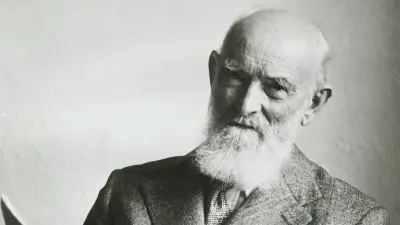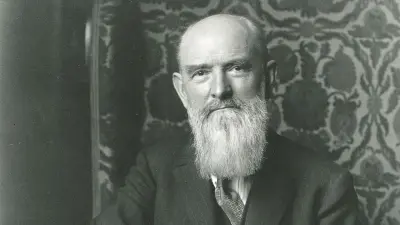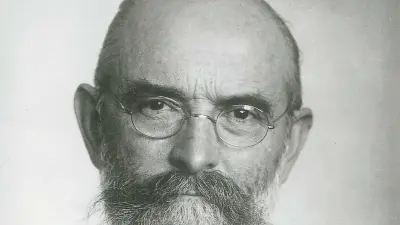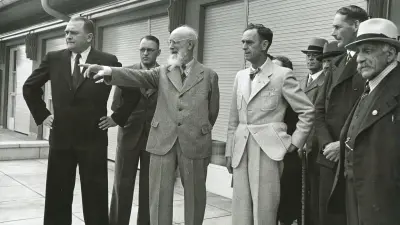The visionary
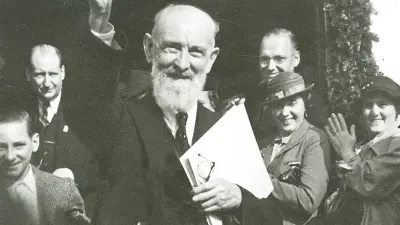
Robert Bosch was much more than just a successful businessman. He was also committed to social responsibility and donated generous amounts of money to charitable projects, especially in the areas of education and health. As a staunch democrat, pacifist, and pro-European, he was far ahead of his time politically.
Promoting higher education
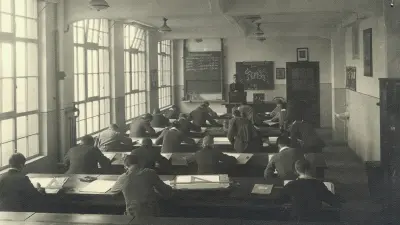
With Robert Bosch showing a keen interest in education throughout his life, it is hardly surprising that it became one of the main beneficiaries of his endowment activities. In addition to excellent vocational training in his company he also focused on universities and adult education. Based on his own personal experience and his years as an entrepreneur, he also knew only too well the importance of educating young people about the great possibilities of technology. His first major donation, established in 1910, was to the Stuttgart Polytechnic that is now the University of Stuttgart, and provided one million marks of support to research and teaching.
Education as a chance
Alongside his interest in improving conditions at universities and colleges, Robert Bosch also wanted gifted schoolchildren to have the opportunity to study. To that end, he founded and donated two million marks to the “Förderung der Begabten” (Promoting the gifted) society in 1916. Robert Bosch was also particularly committed to expanding adult education, a cause he supported in his involvement with the “Verein zur Förderung der Volksbildung” (Society to Support Public Education). A pioneer in its field, the association had taken over responsibility for the new Stuttgart adult education center. For Bosch, education was more than just the accumulation of knowledge. It also meant developing the ability “to make the right political decisions and to recognize false doctrines as such.”
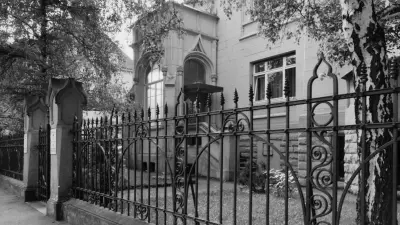
Helping healthcare
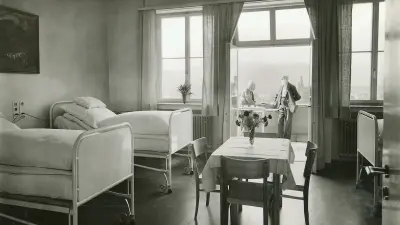
When it came to healthcare, Robert Bosch was a dedicated supporter of alternative medicine. In the period from 1915 to 1916, he supplied a total of three million marks to help achieve his ambition of setting up a homeopathic hospital. In 1936, he marked the double celebration of his 75th birthday and the company’s 50th anniversary by donating a further five and a half million marks to this project. Robert Bosch’s civic initiatives during his lifetime reached their pinnacle with the opening of the Robert Bosch Hospital in Stuttgart in 1940.
Democray and rapprochement
In the politically turbulent era of the Weimar Republic, Robert Bosch wanted more than ever to play his part in promoting a basic understanding of democracy based on the “recognition of the rights and merits of others.” As a result, not only did his social commitment become stronger, but also his political involvement. Bosch became a keen supporter of international rapprochement. He joined the German section of the Committee for Franco-German Relations and, in 1935, invited German and French war veterans to Stuttgart under the slogan “Pioniere des Friedens — Pionniers de la Paix” (Pioneers of Peace).
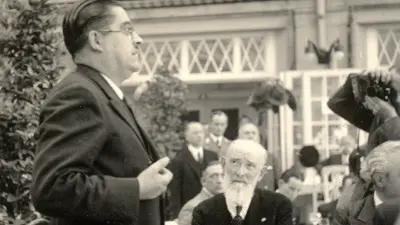
A united Europe
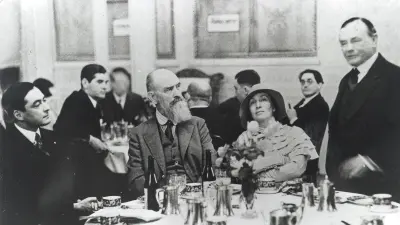
Following the end of the German monarchy, Robert Bosch saw it as his task to defend the newly founded republic against its numerous political opponents in Germany. He believed the key to this lay in promoting the general welfare of the people, adult education, and international understanding. Accordingly, he backed Count Richard Coudenhove-Kalergi’s vision of a pan-European confederation of states. He also supported the reformist views of the national liberal Friedrich Naumann, particularly his German university for political science, which sought to bring together academics and practitioners to teach politics in an environment free from the influence of the state.
In difficult times
Robert Bosch was alarmed by the aggressive, German centric policies of the National Socialists. His final years were overshadowed by his company’s entanglement in the Third Reich’s war plans and rearmament programs. Due to their personal convictions, Robert Bosch and his closest associates, the so-called “Bosch-Kreis” supported resistance to the Nazi regime and helped to rescue Jewish associates and others facing persecution.
In 1937, Bosch brought the former Lord Mayor of Leipzig, Carl Goerdeler, into the company as an advisor. With the knowledge and support of Robert Bosch and his closest associates, Goerdeler organised a resistance cell against Hitler. For Robert Bosch, the outbreak of war in 1939 was a catastrophe — both on a personal level and for his country. Yet Bosch could only stand by and watch as the use of forced labor became a dreadful reality at his company.
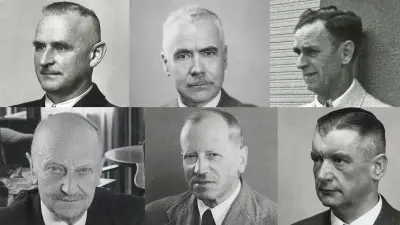
Death an obituaries
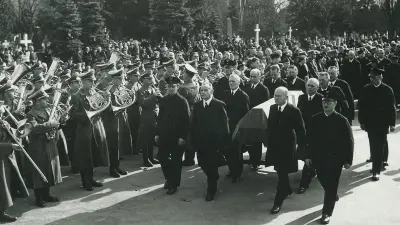
Robert Bosch died on March 12, 1942, of complications resulting from an inflammation of the middle ear.
Much to the distress of his family, both Robert Bosch’s death was pounced upon by the Nazis for propaganda purposes. However, many obituaries also paid tribute not only to the entrepreneurial and personal achievements of Robert Bosch, but to the social commitment demonstrated by the company founder as well.
His legacy
It was Robert Bosch’s dearest wish that the company should continue to show a “strong and meaningful development” after his death. This was not simply a matter of maintaining and administering the status quo, but also one of growing and actively shaping the future.
In 1938 he had drawn up his will which included guidelines for his successors: “It is a matter dear to my heart that Robert Bosch GmbH should be safeguarded in its substance [...] for as many future generations as possible, and that it should remain at all times financially independent, autonomous, and able to take appropriate action.” In addition to the long-term safeguarding of the company’s future and its development potential, the will’s main concerns were that lasting ties should be maintained with Robert Bosch’s descendants, and that a proportion of the company’s profits be used for charitable and social causes. The Robert Bosch Stiftung, a charitable foundation set up in 1964, carries on his work to promote and support the sciences, healthcare, international understanding, and education to this day.
